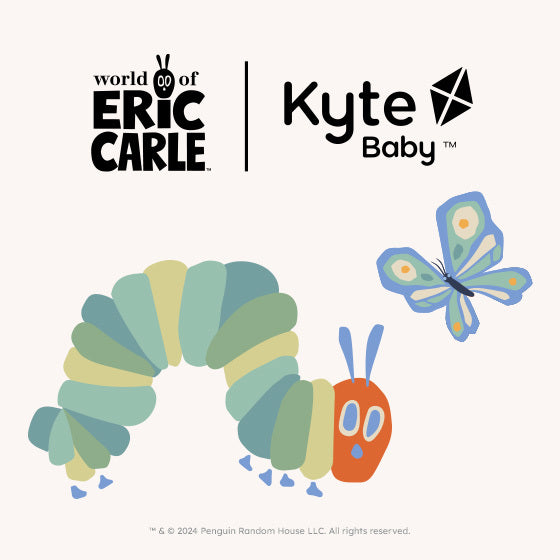
If you’re currently expecting or just had a little one, you’ve probably been warned that you’ll “never sleep again.” We know that sleep loss is a normal part of having a newborn baby!
Newborn sleep schedules aren’t really a thing-- they eat on demand, they sleep on demand, and they poop a lot.
You’re more on their time than they are on yours! However, you can establish a general series of flexible events to meet your little one’s wants without feeling like you’re on a rigid time based schedule.
In reality, it’s up to us to help our babies establish their circadian rhythm before their hormones take over.
Once they’re producing sleep hormones, you start to see more predictable sleep patterns and a sleep schedule isn’t as hard to achieve as it might’ve been when your little one was younger.
Disclaimer: nothing should be super rigid at this age as far as schedules go, make sure you are following their feeding cues (responsively feeding) and their tired signs!
In this blog, we will go over:
- What nights look like
- newborn sleep considerations
- newborn feeding schedule
- newborn nap schedule
- Sample day for a newborn
- Activities you can do during awake time

WHAT NIGHTS LOOK LIKE FOR A NEWBORN SLEEP SCHEDULE:
In one word: erratic!
We cannot set expectations that are too high for a newborn. For a while, they will likely be eating every 2-3 hours around the clock. Most pediatricians will have you wake for feedings at night until they’re back at birth weight but in reality, they’ll likely be waking you for feedings!
A newborns night stretch typically starts around 9-11:00pm. They do have later bedtimes because they’re still waiting on their circadian rhythm to develop and mature. As that happens, it’ll move earlier gradually.
The long stretch of sleep develops from bedtime to their first night time feeding. This happens as bedtime naturally becomes earlier. You can consider dreamfeeding at this age if you would like to give it a try!
This is where you feed your baby before they wake up, before you go to bed so that you can catch a few hours of sleep before they wake up for another feeding.

NEWBORN SLEEP SCHEDULE:
A sleep schedule for a newborn may not exist! You’re going to potentially be dealing with oral ties, feeding issues, tummy issues, healing from birth, etc. The last thing you need to do is worry about a sleep schedule or rigid by the clock times that your newborn has difficulty following.
However, to help influence their circadian rhythm, it can be beneficial to wake them around the same time each day.
I would expect morning wake up time to be between 6-8am and bedtime to fall between 9-11:00pm.
If you find that their day to day sleep schedule is really erratic, don’t be afraid to wake them up in the morning around the same time (consider a 30 minute window, like 7-7:30am). This will help to stabilize their day, their naps, and their bedtime!
Pretty soon, they will wake themselves up during that time in the morning and you won’t have to.
A gentle way to wake your little one up would be to open their door, wait a minute or two then turn off their sound, wait again, then open up the blinds before gently rubbing their back and speaking softly to wake them up.
NEWBORN NAP SCHEDULE
Something to remember about newborns: they become overtired and overstimulated very very easily!
They generally begin to exhibit sleep cues around the 45-60 minute mark of being awake. This allows for frequent naps during the day that can last anywhere from 20 minutes to 2 hours.
It is still normal to have cat naps throughout the day so don’t be afraid to hold and snuggle for a longer nap sometime throughout the day in order to keep your baby well rested for good night time sleep.
You may already know, but overtiredness from too much awake time or too little day time sleep can negatively impact your nighttime sleep!

NEWBORN FEEDING SCHEDULE
Regarding feeding schedules for newborns, most babies are feeding every 2-4 hours during the day with a potentially longer stretch at the beginning of the night.
Most pediatrician’s will encourage you to wake your newborn every 3 hours (some more, some less) during the night for feedings until they’re back at birth weight.
It’s also beneficial to feed them often during the day as well to help them sort out their days/nights.
Some babies will fall into a very predictable/textbook “3 hour schedule” around this age where they sleep for 90 minutes, are awake for 90 minutes and eat every 3 hours during the day with a longer stretch at night.
It’s also normal for them to take longer naps, shorter naps, and eat at varied times during the day. There is a lot that we can consider “normal” for young babies so try to not compare!
SAMPLE SCHEDULE FOR A NEWBORN
A SAMPLE SCHEDULE FOR a newborn MAY LOOK SOMETHING LIKE:
7:00am wake up, eat, play
8:00-9:00am nap in bassinet, eat, play
10-10:30am nap in crib, eat, play
11:30-1:00pm nap in carrier, eat, play
2-3:15pm nap in bassinet, eat, play
4:30-5:00pm nap in car, eat, play
6-7:00pm nap in carrier, eat, play
8:00pm bedtime
If naps are short, then you could add in another nap or help to extend a nap so that they get a little more day sleep in.
Don’t let a newborn sleep schedule stress you out if your baby didn’t read the book and doesn’t follow the perfect day. Remember to try to start your morning around the same time each day and that will help everything else stabilize!
Important note: you do want to limit any single nap to 2 hours maximum to encourage frequent daytime feedings.
It is a great time to incorporate a bedtime routine for your baby if you have not!
And parents, infant sleep is a predictor in maternal mental health disorders postpartum so do not feel guilty for wanting to improve sleep for your little one since it affects you too!

ACTIVITIES YOU CAN DO DURING AWAKE TIME FOR A NEWBORN
Now that your baby is staying awake for longer periods of time, you may be thinking, “what do we do for an entire hour?!
- Mimic any sounds, like cooing that they make
- Engaging with them with eye contact and different facial expressions
- Tummy time
- Sing to them
- Incorporate them in your daily routine by babywearing
Remember to focus on responsive feeding, learning their cues (how they communicate is through behavior), changing up the activities during their awake time, and try not to stress if your child doesn’t fit the textbook version of sample schedules!
It is definitely okay to want to improve sleep, especially during the night when it is affecting you as well, but also tune into your child and as long as they’re happy, eating well, gaining weight well, and you’re getting in some great bonding times, then you’re raising a happy, healthy kid.
AUTHOR:
Ashley Olson is a certified pediatric sleep consultant, owner of Heaven Sent Sleep, and passionate about helping new parents, experienced parents, desperate and sleep deprived parents form healthy sleep habits for their children.
She has over 3 years of experience in working with families and has completed over 150 hours of coursework plus continuing education related to infant and toddler sleep. The focus of her work is on fostering a routine that grows your bond with your child while improving their sleep habits. She specializes in custom sleep plans and one on one support in changing sleep practices!





















